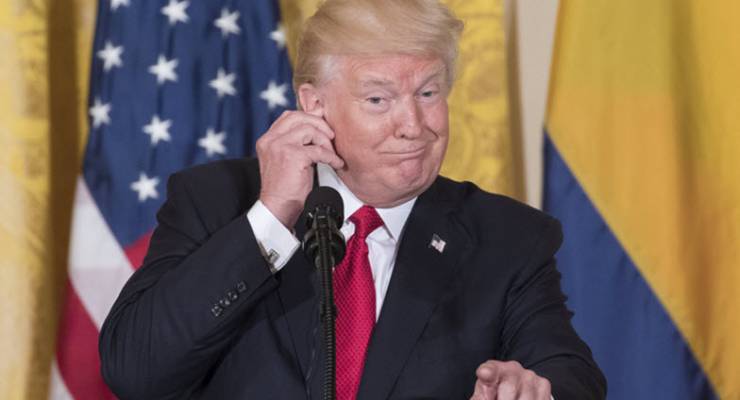
You don’t need a particularly fertile imagination to think about what would happen if a politician proposed slapping an impost on building materials, which would feed into the cost of everything in the country via higher construction costs for housing, commercial building, infrastructure, mining — even manufacturing. The outcry would be immediate, the condemnation savage.
In the bizarro world of dumping, however, quite the reverse happens: politicians rush to support each other across the political divide in the quest to make things that businesses across the country use, more expensive.
While Australia waits to see whether Malcolm Turnbull managed to get Australia’s relatively limited steel exports to the United States exempted from President Donald Trump’s new 25% tariff, there’s much consternation about the international consequences of it. Not just the prospect of a trade war that will impoverish us all, but the idea that foreigners, facing difficulty accessing the US market with a heavy tariff, will look to sell cheap steel in Australia; Canada, South Korea, Brazil, Mexico — all looking to flog their steel here.
The political consensus is, this is a disaster that must be prevented. We can’t allow cheap steel to enter the country. “This is lose, lose, lose,” said Labor’s Shadow Treasurer Chris Bowen, offering to back whatever the government might do to prevent this nightmare from unfolding.
An uneducated observer would think this was all arse-about. People with high-quality steel-manufacturing industries want to sell us cheap steel, which would decrease a key cost input for a huge range of products. What’s not to love about that? Australian business, and consumers, would be the winners.
But the interests of the steel industry come ahead of those of Australian businesses and consumers. The industry claims it employs 90,000 people, but if you apply the normal multiplier of self-promotion that industries use, we’re talking about a few tens of thousands of jobs. And we already punish construction companies and, indirectly, every business and consumer in the country, through an anti-dumping system that imposes perhaps $2 billion a year in additional building costs. And we make our anti-dumping system deliberately bureaucratic and snail-like, to offer an even greater deterrent to foreigners who want to commit the crime of selling cheap products to Australians. That’s on top of the loans that steel companies get from governments.
Steel manufacturing attracts the kind of unthinking, reflexive protectionism that automotive manufacturing used to get, one that we grew out of when it came to cars (or, at least, the Liberals grew out of it). All the protectionist excuses are trotted out for steel. It’s a strategic industry. It’s national security – what if there’s a war? We make superior steel to that foreign rubbish. It employs so many workers. Regional communities. It’s the complete list of protectionism clichés.
And like most protectionism, the victims barely know it. But it’s there. Every year, $2 billion in extra costs in our building industry. Every new home, extra cost. Thanks, homeowners and renters. Every new commercial building, extra. Thanks, investors. Every new road, rail line, pipeline, port facility — a slug for every tonne of steel used. Thank you, taxpayers.
And we have the hide to confect outrage about Trump’s decision to engage in the same mindless, punitive protectionism. He’s different only in degree, not kind.








2 billion per year in extra costs in a ? billion a year industry. Surely we need some context here.
Bernard assumes that the cheaper cost to the importer/manufacturer/constructor of dumped goods will be passed on to the consumer.
And higher wages to the workforce.
Not just steel and not just Refugee policy. The L/NP have been the torch bearer for extremist policies for the past 25 years. All Trump has had to do is read what various L/NP members and supporters have said and done and simply repeat them. The only thing we can feel superior about is that we have given him his strap lines. Even today the L/NP support almost all the things Trump says and does.
Just when you think Bernard might have finally twigged to the forces driving anti-establishment populist disaffection, he returns to singing from the same old hymn-sheet.
I note Bernard seems to broadly support the protection of worker’s rights. But seems to draw a line at the rights of workers overseas who, are routinely treated like disposable slaves to produce the goods cheaply dumped on our “market”.
I note Bernard has been upset by the regulatory failures of the systems that allow cheap highly flammable imported cladding to be installed on major public buildings. It’s just that he is contemptuous of any “protectionist” measures that, god forbid, police the dumping of cheap cladding.
Because, obviously, cost is everything and, hey, your apartment block might never catch on fire anyway!
Then there’s the TPP?